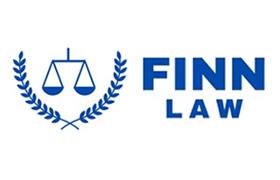Cohoes Juvenile Law Lawyer, New York
Sponsored Law Firm
-
 x
x

Click For More Info:
-
Finn Law Offices
12 Sheridan Ave. Albany, NY 12207» view mapAccident & Injury and Criminal Defense Action-Oriented Legal Advocacy
At Finn Law Offices, our attorney relies upon his experience and dedication to protect your rights in a personal injury, employment law, criminal defense or civil rights case.
800-872-6030
Not enough matches for Cohoes Juvenile Law lawyer.
Below are all Cohoes Criminal lawyers.
John F. Harwick
✓ VERIFIEDAccident & Injury, Personal Injury, Slip & Fall Accident, Car Accident, Criminal
Top Rated Upstate NY Personal Injury Law Firm - E. Stewart Jones Hacker Murphy, LLP
John Harwick is a top-rated personal injury lawyer practicing in upstate New York. www.joneshacker.com
 Ryan M. Finn Albany, NY
Ryan M. Finn Albany, NY AboutFinn Law Offices
AboutFinn Law Offices

